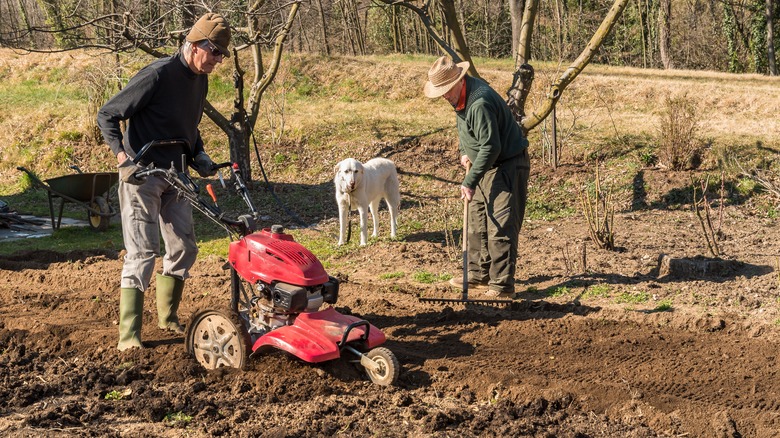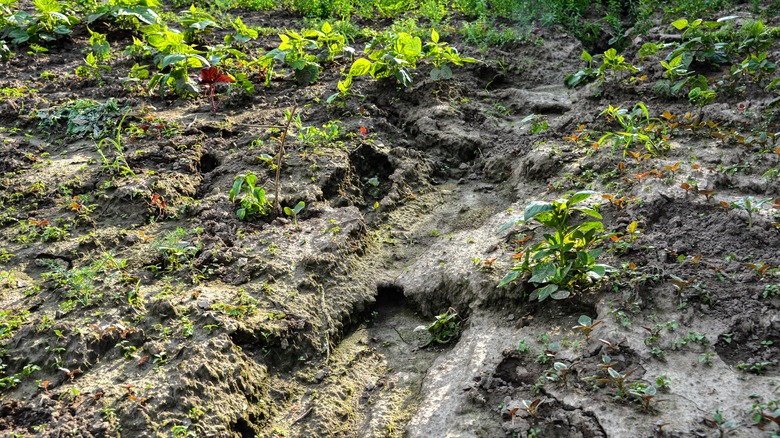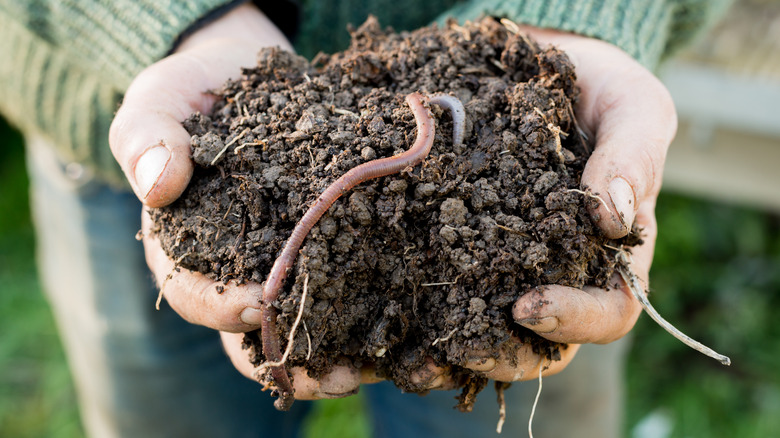Why You Might Want To Think Twice Before Tilling Your Garden
It's a lot of back-breaking work that can tire you, and turns out the old practice may not even be worth it. The benefits of tilling your home garden are far outweighed by the negatives, perhaps a good reason to just skip it.
Tillage is the process of aerating the soil by turning and mixing it with different forms of equipment. The scale of the mechanical equipment used depends on how much land one is dealing with, but for home gardeners, rototillers seem to be the most common – they can be hooked up to a small tractor or pushed and are often used to prepare the soil for the next growing season.
While tilling certainly provides some short-term benefits, like giving immediate fertility to the soil, it wreaks havoc on the long-term health of the ground. Beneficial insects and microorganisms can be killed, and the dirt becomes more vulnerable to wind and water erosion, so valuable topsoil washes away.
Tilling disturbs the soil's ecosystem and can cause erosion and soil compaction
Soil erosion can occur gradually over time when heavy rains or wind remove soil particles and cause the soil to deteriorate. Some signs of soil erosion you may notice are exposed roots, wet patches, and cracks in the soil. Tillage can accelerate soil erosion because the organic matter on top that helps keep the soil in place during a storm has been lifted and loosened. This makes it more likely that the nutrient-dense topsoil will wash away during a storm, often leaving growers with undesirable subsoil to work with, which is not as fertile.
Over time, tilling can also cause soil compaction, which is the hardening of the soil — this makes it difficult for air and water to pass through the ground properly and creates poor growing conditions for crops such as root plants. Further, compacted soil creates an environment where weeds thrive.
Interestingly enough, people often till to get rid of weeds. Although it initially destroys them, it can also stir up weed seeds from the deepest layers of the soil. So, if you're trying to get rid of weeds in your garden, it is best to avoid tilling.
Tilling destroys microorganisms and diminishes the food supply for earthworms
At first, tiling often makes the ground more fertile. However, regular tilling over time can diminish the soil's ecosystem by destroying soil fungi and beneficial microorganisms.
For one, tilling reduces earthworm populations by destroying their burrows and diminishing their food supply. Earthworms help loosen, mix, and oxygenate the soil in your garden — the deeper the soil is disturbed, the more damaging it is for earthworms. Further, tilling kills valuable microorganisms, such as fungal filaments, which benefit plant establishment and growth.
In conclusion, no-till is a better option to care for your garden and protect the soil's ecosystem. There are a few things you need to know to start a no-till garden, and you will want to consider the various methods you can try such as using cardboard or mulch to suppress weed growth and improve soil structure. You might have to do a little bit of research to get started, but it will be well worth your time — and your garden will thank you for it!



